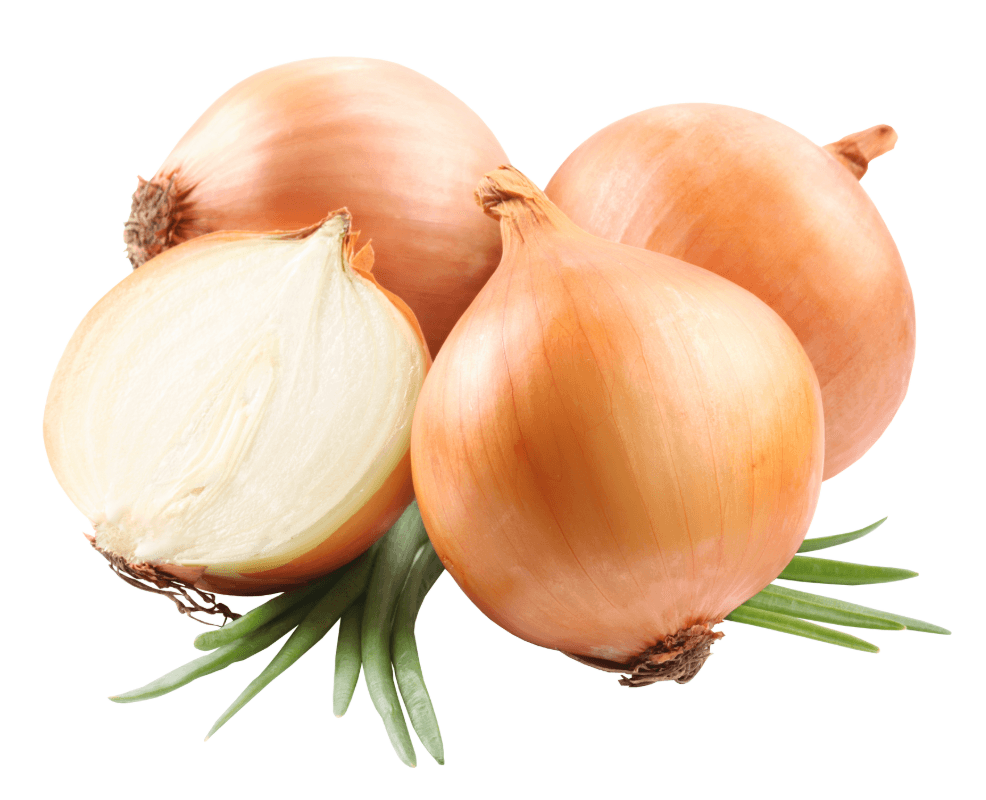Onions
Dogs and cats must never eat onions. Onions come in various types — yellow, red, white, etc. — but all types are toxic to pets. Onions contain a toxic compound called N-propyl disulfide, which can damage red blood cells and cause anemia. This condition is known as hemolytic anemia.

Because of this risk, it’s essential to never feed onions to your pets and instead offer them safe, pet-friendly treats.
N-propyl Disulfide
N-propyl disulfide is a toxic compound that destroys red blood cells in dogs and cats, leading to anemia. Red blood cells transport oxygen and carbon dioxide throughout the body. When they are damaged, the blood’s ability to carry oxygen is greatly reduced, which can have serious consequences for your pet’s health.
Foods Containing N-propyl Disulfide
This toxic compound is primarily found in onions, but also in related plants such as leeks, chives, and garlic. All of these should be kept away from pets.
What Is Hemolytic Anemia?
Hemolytic anemia is a condition in which red blood cells are either destroyed too quickly or the body’s ability to produce new red blood cells is impaired, leading to a decrease in red blood cell count.
When this occurs, the blood’s ability to carry oxygen and carbon dioxide is compromised, which can cause a range of symptoms, including:
- Pale or yellow gums and skin
- Vomiting and diarrhea
- Lethargy or weakness
- Loss of appetite
- Breathing difficulties
- Anemia
If you observe any of these signs, seek veterinary care immediately.
Symptoms After Onion Consumption
Symptoms may not appear immediately but can develop over time. Watch for the following signs if you suspect your pet has eaten onions:
- Vomiting
- Diarrhea
- Loss of appetite
- Breathing difficulties
- Lethargy
- Hemolytic anemia
If you suspect your dog or cat has consumed onions, contact a veterinarian as soon as possible.
What to Do If Your Pet Has Eaten Onions
- Consult a veterinarian immediately: Seek professional help without delay.
- Record the amount consumed: Note how much onion your pet may have eaten.
- Encourage water intake: Provide plenty of water to help flush out the toxins.
- Pursue active treatment: Depending on symptoms, the veterinarian may administer treatments such as fluid therapy, medication, or blood transfusions.
Veterinary Treatment
The type of treatment will depend on your pet’s condition, size, and how much onion was consumed. Common veterinary treatments include:
- Blood test: To assess red blood cell levels and check for anemia.
- Fluid therapy: To prevent dehydration and help remove toxins from the blood.
- Medication: To stimulate red blood cell production and manage symptoms.
- Blood transfusion: In severe cases, transfusions may be necessary to restore red blood cell levels.
Because treatment can vary significantly, immediate consultation with a veterinarian is essential if onion ingestion is suspected.
Summary
Onions are highly toxic to dogs and cats due to a compound called N-propyl disulfide, which damages red blood cells and causes hemolytic anemia. Symptoms may not appear right away but can include vomiting, weakness, breathing problems, and anemia. If your pet consumes onions, seek veterinary care immediately, record the amount eaten, and encourage water intake. Early treatment can save your pet’s life.